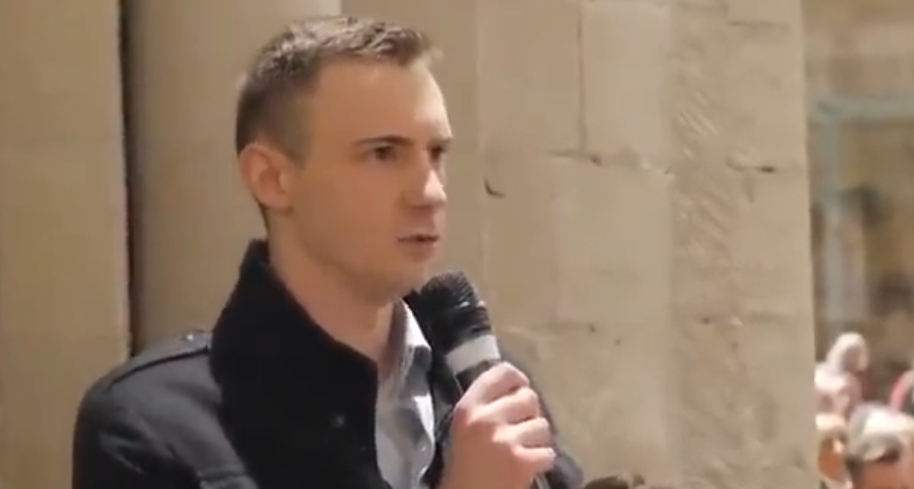Judge: British People Unprotected By Human Rights Legislation
by TBG

In another recent and disturbing case, a judge has determined that British people with non-liberal opinions are not entitled to the same protections as others under 'human rights' legislation.
A political activist called Alec Cave was sacked from his role at the Open University after activists created a social media campaign targeting his workplace. He took the case to an employment tribunal, but it was dismissed by Judge Isabel Manley.
The activist had elsewhere come onto the public radar after questioning the local MP's support for depositing foreign interlopers into a small community and brought in by this government:
Well said that man 👏👏👏
— Andysson 🐦 (@sarcitwat) February 18, 2023
Wesley Russell from #RenewBritannia Asks Andrew Selous MP About Immigration in the UK #Knowsley @LittleBoats2020 pic.twitter.com/b7ydEUGp30
Based upon decisions of the ECHR (Human Rights Act) as incorporated in the Employment Equality (Religion or Belief) Regulations 2003, the judge said that "He has shown (his nationalist beliefs) are not worthy of respect in a democratic society. It is incompatible with human dignity and in conflict with the fundamental rights of others."
The examples used by the court included his online statements:
He asked the Star Wars actor John Boyega "Why does a person who speaks and acts like a foreigner expect to be treated the same as an Englishman in England?"
"That the government should discriminate in favour of British people, for instance, in the provision of social housing... a black person would be a lower priority."
He told the Black activist Shola 'Caucasity' Mos-Shogbamimu on Twitter that she should then "f*** off and go home" after another of her arguably incendiary posts had declared that she was "proudly African."
Outraged Judge Manley declared that he said: "I believe that nations ought to be defined by shared heritage such as common language, culture, faith, and ancestry.' 'He said even those born in the UK are not necessarily British. 'It is his belief that citizenship does not count. It is ethnicity which counts rather than a passport."
She concluded, "It is, at the very least, ethnocentric... and could also arguably be described as racist."
Now some may agree with some or all of his statements and others may be appalled. But we hope most will examine their conscience to decide whether opinions given under a pseudonym (Wesley Russell) by an activist currently with a small group calling itself 'Renew Britannia' should be sufficient to strip him of the rights that others can call upon in our modern society?
Does the expression of particular opinions, in this case "ethnocentric" ones mean that an employer should be able to terminate an employment contract, without recompense? Should a university? With attendant media headlines, effectively destroying a career? One can imagine many opinions will not find favour under a progressive liberal system, whether it is on racial identity issues or gender-critical perspectives or many others.
It's also hard to see how an opinion online can be "in conflict with the fundamental rights of others." Sharing a view that others may dislike is not sufficient to deprive people of their rights when there is a fundamental power imbalance. A legal principle which makes opinions in conflict with others' Civil Rights is a deeply Orwellian measure. A state that upholds the repression of people who hold the 'wrong' opinions is far more destructive of the rights both of this person and rights generally.
Perhaps the votaries who support this type of society might like to consider a counter-historical situation, where instead of authoritarian liberal repression of disfavoured views, society moved to a situation where authoritarian conservative authorities were deciding which opinions were "worthy of respect" or basing its legal protections on the basis of the rights of the majority.
We rather feel in this case it would be a situation of "rules for me but not for thee."